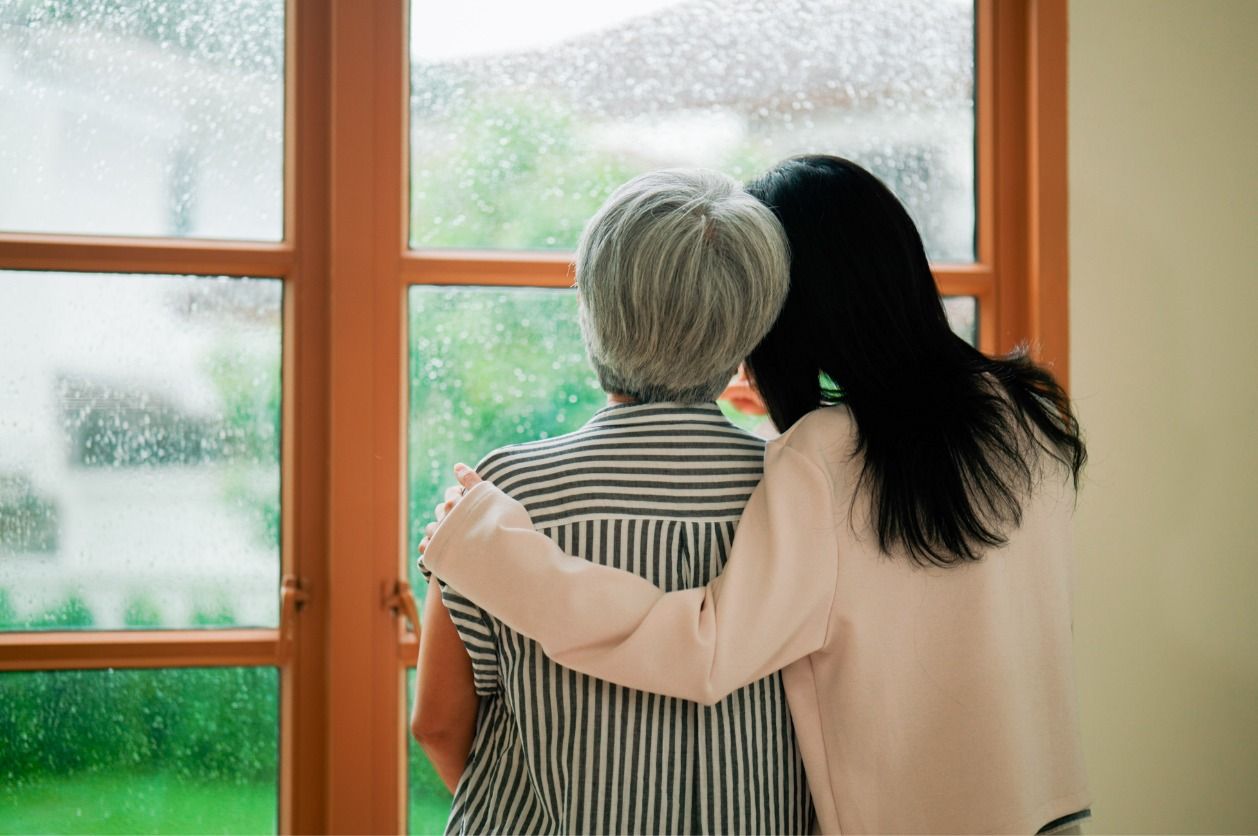
How Elders’ Emotions Are Impacted by Natural Disasters
When a disaster happens, it affects everyone. Some effects are direct — injury, loss of life, and property — but others are less so. The emotional impact of a disaster is felt not just by those in the disaster zone but, in our connected world, by everyone. Elders’ emotions can be impacted particularly strongly. While many seniors are more resilient simply because they have lived through so many disasters, big and small, others are more vulnerable. People with cognitive challenges may also feel the impact because they might not understand what is happening around them.
How can you help your loved one deal with the emotions? Here are some things older adults are particularly prone to — and how you can help them get through it.
When a disaster happens, it affects everyone. Some effects are direct — injury, loss of life, and property — but others are less so. The emotional impact of a disaster is felt not just by those in the disaster zone but, in our connected world, by everyone. Elders’ emotions can be impacted particularly strongly. While many seniors are more resilient simply because they have lived through so many disasters, big and small, others are more vulnerable. People with cognitive challenges may also feel the impact because they might not understand what is happening around them.
How can you help your loved one deal with the emotions? Here are some things older adults are particularly prone to — and how you can help them get through it.
Uncertainty
One of the impacts of natural disasters on elders’ emotions is uncertainty. By their very nature, disasters destabilize people’s lives. Uncertainty about the future can upset anyone, but disruptions in routines may affect older people more, as they tend to have more established habits.
Major regional disasters can lead to worries about access to food and power. This can be a particular concern for seniors who are, for example, using oxygen, or even those reliant on a CPAP machine for a good night’s sleep.
Providing logistical support can help a lot with post-disaster uncertainty. Even showing up with a hot meal can make a huge difference in elders’ emotions.
Not Wanting to Ask for Help
Older people are often unwilling to ask for help. The same people who are reluctant to use a hearing aid or mobility device, may not be willing to ask for help after a disaster. They may, in some cases, have issues accepting it when offered.
You may have to look for ways you can help, offer help, and be insistent. Bear in mind that many people of all ages don’t want to admit when they have emotional issues.
Fear of the Unknown
The impact of natural disasters on elders’ emotions also involves fear of the unknown. Unfortunately, we’re seeing a lot of “unprecedented” disasters lately, with hurricanes hitting places that are seldom struck by them and bad fire seasons becoming normal. This may make people wonder if the place they live is going to change forever in unexpected ways.
Older people caught up in that may experience fear of the unknown and grief for things that have been destroyed. They may feel worried about what will replace these losses.
A disaster can sometimes be the last straw for staying in one’s home. Permanent evacuation can lead to major emotional distress for anyone, of any age, but particularly for people who have lived in the same place for a long time.
Not Knowing What Actions to Take
Disasters can be scary enough when you know exactly what to do. In places that are prone to certain kinds of disasters, people “know the drill.” They know to head to the basement for a tornado or to higher ground for a hurricane.
Older people may have retired to a place with a different set of risks from when they were younger. Moving to Florida, for example, increases your risk of hurricanes. However, seniors may be experiencing mild cognitive issues that cause them to become confused.
It is important to assess elders’ emotions after a disaster, as they may not know when they can safely go home or what they can do to increase preparedness in the future. Younger relatives can help them by looking things up for them and giving advice.
After a disaster, your older loved ones may feel upset and confused, or they might handle it better than you do. Always check on them, and ensure they have the practical help they need and the emotional support you can give. Home health aides can help with practical support, of course, making sure that they can get things working without power, bringing food, etc.
If you or your older relative needs help with daily tasks, contact Silverbell today for expert, compassionate assistance.
